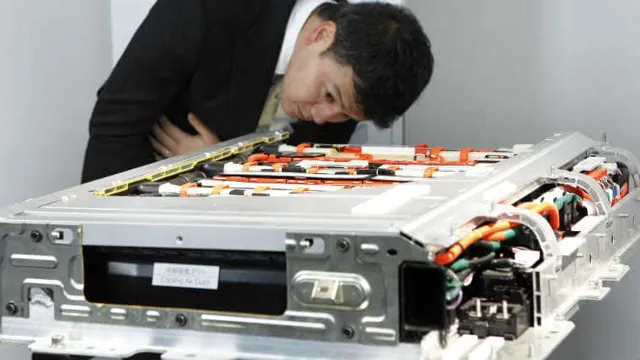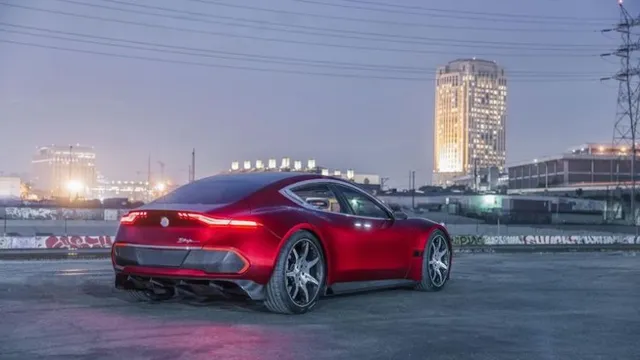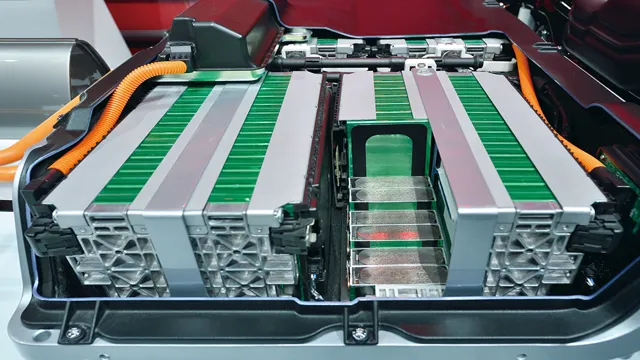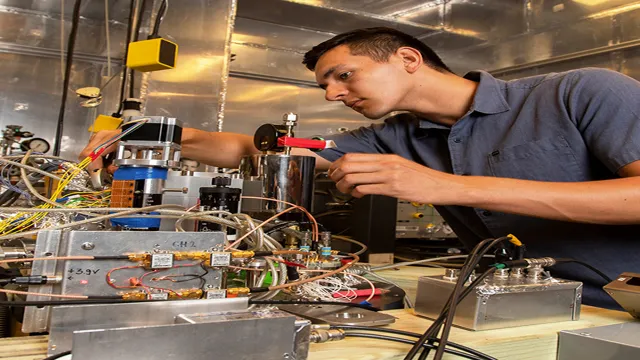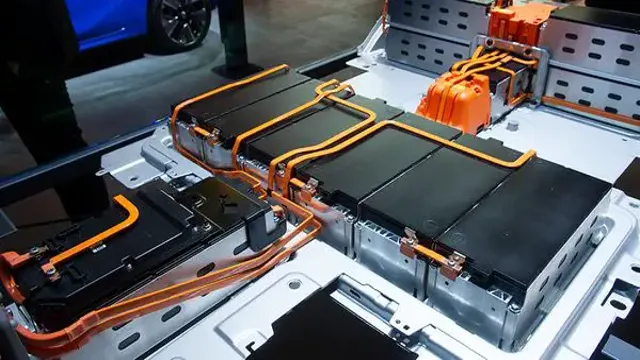Revolutionary Toyota Electric Car Battery Technology: Powering the Future of Sustainable Transportation
Toyota, the Japanese automotive giant, is taking the world of battery technology by storm with the introduction of its new electric car battery. The innovative battery is expected to bring a revolution to the automotive industry, not just in terms of efficiency and performance but also in reducing the carbon footprint and contribute to a more sustainable future. The new technology has caught the attention of many car enthusiasts around the globe, given Toyota’s reputation for producing some of the most reliable and durable vehicles in the world.
Keep reading to discover what makes Toyota’s electric car battery technology unique, and what this means for the future of the automotive industry.
Introduction
Toyota has been a pioneer in electric car technology for many years, and their advances continue to set high standards in the industry. Among their many innovations, their electric car battery technology stands out as a prime example of their forward-thinking capabilities. These batteries are highly efficient and durable, and they have been designed to deliver consistently high performance over extended periods of use.
One of the key features of the Toyota electric car battery is its use of nickel-metal hydride technology, which allows for rapid charging and provides a strong power output. Additionally, Toyota has invested heavily in research and development to create sustainable battery materials that minimize environmental impact and maximize energy efficiency. All in all, Toyota has established itself as a leader in electric car battery technology, providing consumers with high-quality and reliable vehicles that are both eco-friendly and cost-effective over the long term.
Why Electric Cars?
Electric Cars Electric cars are becoming a hot topic as the world strives to reduce its carbon footprint and create a more sustainable future. The use of electric cars has gained popularity and gained acceptance as more car manufacturers are producing them. Electric cars run purely on electric power, which minimizes greenhouse gas emissions and improves air quality.
By driving an electric car, you not only reduce your carbon footprint, but you also save money on fuel and maintenance costs. In addition, they tend to have better performance, acceleration, and precision than traditional gasoline-powered cars. With more advancements in technology, electric cars are gaining longer range and becoming more accessible to the general public.
So, why electric cars? Because they are a step toward a future that is cleaner and more efficient, and they offer a better driving experience with fewer environmental consequences.
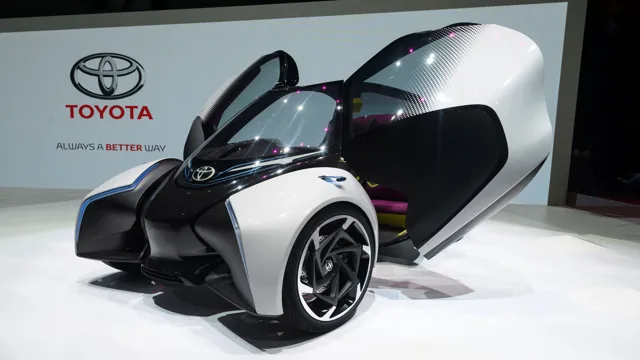
Toyota’s Commitment to Electric Cars
Toyota has long been known for its commitment to innovation and sustainability, and their recent focus on electric cars is a prime example of this dedication. As the world’s largest automobile manufacturer, Toyota is taking a proactive approach to reducing carbon emissions and promoting eco-friendly transportation. In recent years, they have introduced several electric vehicle models, including the Prius Prime and the Mirai fuel cell vehicle.
Toyota’s commitment to electric cars extends beyond just producing new models; they are also investing heavily in research and development to improve battery technology and increase the range of their electric vehicles. With a long-term goal of reducing carbon emissions to zero, Toyota is leading the way in the global transition to electric vehicles.
The Science Behind Toyota’s Battery Technology
When it comes to electric cars, one of the biggest concerns for consumers is the range of the battery. That’s where Toyota’s battery technology comes in, providing longer ranges while also being more sustainable. The technology behind Toyota’s batteries is called a solid-state battery, which uses a solid electrolyte instead of the traditional liquid one.
This makes the batteries more stable and less likely to leak or overheat. Additionally, the solid-state batteries can be made thinner, allowing for more space in the car’s interior while also reducing the weight. Toyota’s batteries also have a longer lifespan, meaning that they will last longer and require less frequent replacements.
Overall, Toyota’s electric car battery technology is a major step forward in terms of sustainable and efficient energy use, making electric cars a more viable option for the average consumer.
Lithium-Ion Battery Technology
Lithium-Ion Battery Technology Toyota is at the forefront of innovation when it comes to lithium-ion battery technology. These advanced batteries are becoming increasingly vital as we move towards a future with more electric vehicles and green energy solutions. Toyota’s battery technology uses lithium-ion cells that are connected into modules and then further assembled into battery packs.
The chemistry behind these batteries is complex but can be broken down into three main components: the anode, cathode, and electrolyte. The cathode is made up of lithium cobalt oxide while the anode is made up of graphite. The electrolyte used is made up of a lithium salt in an organic solvent.
When the battery discharges, lithium ions move from the anode to the cathode, producing electric current. When the battery is charged, the process is reversed, and lithium ions move back to the anode. Toyota’s lithium-ion batteries have a high energy density, which means they can pack a lot of power into a small space.
They are also incredibly durable, with a long life span and high resistance to degradation. Overall, Toyota’s lithium-ion battery technology is groundbreaking and has the potential to revolutionize the way we think about energy storage and electric vehicles.
Nickel-Metal Hydride Battery Technology
Toyota’s nickel-metal hydride (Ni-MH) battery technology is a key feature of the company’s hybrid vehicles. The science behind this battery technology lies in its ability to store and release energy efficiently. The battery is made up of positive and negative electrodes, separated by a thin layer of material that allows for the movement of charged particles.
When the battery charges, the negative electrode stores hydrogen ions, which are generated from a chemical reaction with the positive electrode. When the battery discharges, those ions move back to the positive electrode, creating an electrical current that powers the vehicle. The advantage of this technology is that it is more durable and long-lasting than other battery types, making it a more reliable and cost-effective choice for hybrid vehicles.
In addition, because Ni-MH batteries operate at a lower voltage than lithium-ion batteries, they are less prone to overheating and require less sophisticated battery management systems. Overall, Toyota’s Ni-MH battery technology is a testament to the company’s commitment to sustainability and innovation in the automotive industry.
Benefits of Toyota’s Battery Technology
Toyota’s electric car battery technology offers a range of benefits that make it stand out from the competition. Firstly, their batteries have a longer lifespan, which means they can last for years without needing to be replaced. This is due to the advanced lithium-ion chemistry used in their construction, which is more durable and reliable than other battery types.
Secondly, Toyota’s battery cells have a higher energy density, allowing for more power to be stored in a smaller space. This translates to better performance and longer driving range for electric vehicles. Additionally, Toyota’s battery technology is designed to be more environmentally friendly, using recycled materials for the battery’s casing and reducing the reliance on rare metals that can harm our planet.
With these benefits, it’s no surprise that Toyota’s electric car battery technology is becoming increasingly popular in the modern market.
Higher Energy Density
Toyota’s latest battery technology offers several benefits, with higher energy density being one of the most significant advantages. Essentially, this means that their batteries can store more energy in a smaller space, resulting in longer driving ranges and more efficient performance. This is particularly important for electric vehicles, which rely on their battery capacity to travel longer distances without needing a recharge.
Higher energy density means more power, which translates to a faster acceleration and a better overall driving experience. It also means that electric vehicles can become more accessible to a wider audience, as they become more practical and comparable to traditional gasoline-powered cars. With Toyota’s focus on sustainable innovation, it’s exciting to see how their battery technology can continue to improve and make a positive impact on the future of transportation.
Longer Lifespan
Toyota has long been known for their innovative technologies and advancements in the automotive industry. One of their latest breakthroughs is in battery technology, which offers a longer lifespan than traditional lithium-ion batteries commonly used in electric vehicles. This means that Toyota’s batteries have a longer life cycle, leading to reduced waste and a more sustainable future for the environment.
Additionally, a longer lifespan means lower long-term costs for consumers, as they do not need to replace their batteries as frequently as they may need to with other EV models. Toyota’s battery technology also offers improved safety features, with a reduced risk of overheating or catching fire compared to other batteries on the market. Overall, Toyota’s advanced battery technology provides numerous benefits for both consumers and the planet.
Lower Environmental Impact
Toyota’s battery technology has several benefits that contribute to lower environmental impact. Firstly, Toyota uses nickel-metal hydride batteries in many of its hybrid vehicles, which are recyclable and have a lower environmental impact than other battery alternatives. Additionally, Toyota’s battery technology has a longer lifespan, minimizing the waste generated from battery replacements.
This longevity is due in part to Toyota’s advanced battery management system, which ensures that batteries are kept at optimum temperature and state of charge. This reduces the amount of wear and tear on the battery, ensuring maximum efficiency and lifespan. By incorporating these environmentally friendly features into its battery technology, Toyota is able to reduce its overall environmental footprint while still providing reliable and efficient vehicles.
Ultimately, this approach benefits both consumers and the environment by reducing waste and improving the efficiency of electric and hybrid vehicles.
Conclusion
In conclusion, Toyota’s electric car battery technology is a game-changer in the automotive industry. With its advanced systems and innovative approach, Toyota is leading the way towards a more sustainable and eco-friendly future. So hop on board and enjoy the ride, because with Toyota’s electric cars, you’ll be driving towards a brighter, cleaner and more efficient tomorrow!”
FAQs
What is Toyota’s approach to electric car battery technology?
Toyota has chosen to focus on solid-state batteries, which offer higher energy density and longer battery life than traditional lithium-ion batteries.
How does Toyota’s battery technology compare to other manufacturers?
Toyota’s solid-state battery technology is considered to be a major breakthrough in the industry and has been praised for its potential to revolutionize electric vehicle performance.
When can we expect to see Toyota’s solid-state batteries in production vehicles?
Toyota has stated that it plans to commercialize its solid-state batteries by the early 2020s, with the goal of extending the range of electric vehicles and reducing their cost.
How does Toyota plan to address the environmental impact of its battery technology?
Toyota has stated that it is committed to minimizing the environmental impact of its battery technology, including reducing the use of rare and expensive materials, increasing recyclability, and sourcing materials in an environmentally responsible manner.
